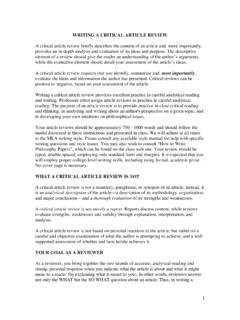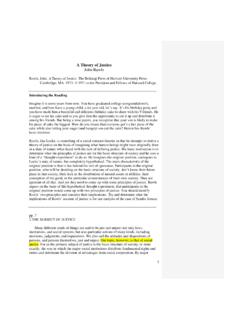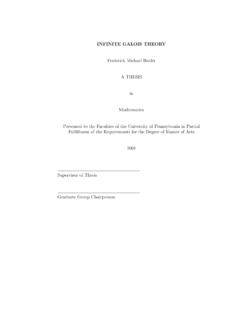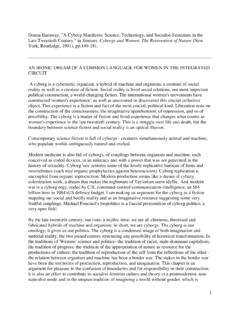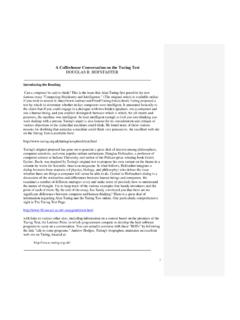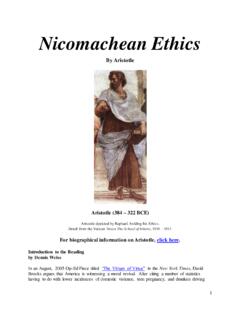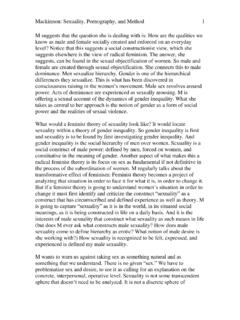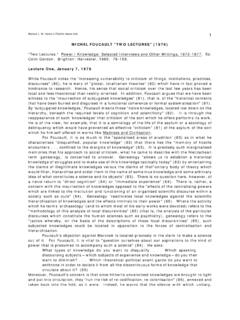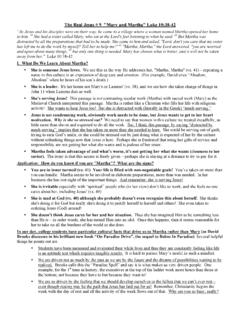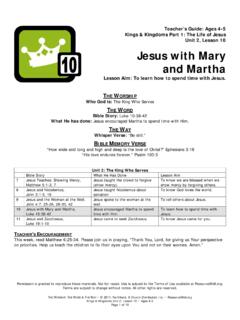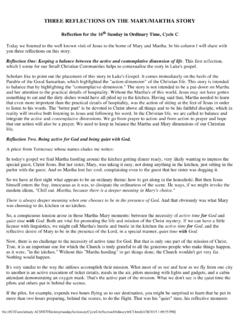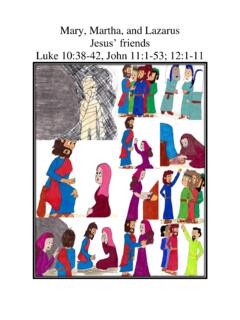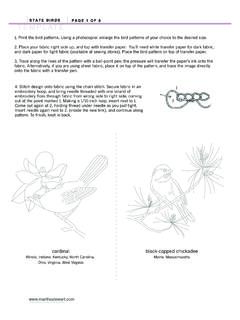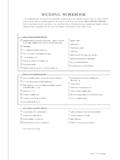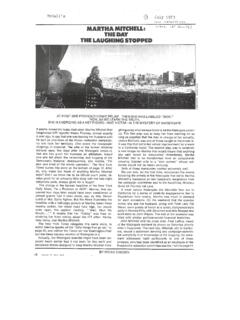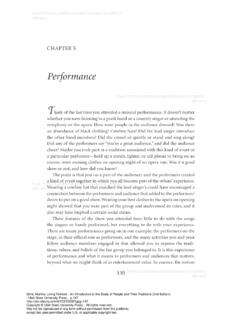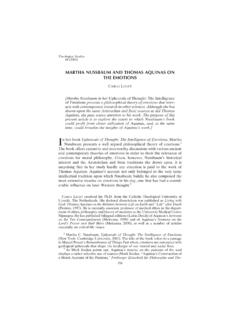Transcription of Martha Nussbaum: The Future of Feminist Liberalism
1 Martha nussbaum : The Future of Feminist Liberalism The object of nussbaum s essay is to defend a certain conception of feminism which has its roots in the liberal tradition of Wollstonecraft and other early liberal thinkers (John Stuart Mill, John Locke, Immanuel Kant) as well as some contemporary figures. The contemporary figure she cites most frequently is John Rawls, a contemporary liberal political philosopher who contributed to discussions of the nature of justice, a key liberal ideal. But nussbaum is also aware that feminists too have contributed to our understanding of justice. But many feminists have been critical of Liberalism for its failure to deal with women s subordination. We will see more of this as we consider radical Feminist philosophy. nussbaum thinks that liberal feminism still has much potential and can in fact address two fundamental Feminist concerns: the need for care in times of extreme dependency and the political role of the family.
2 She considers these two problems in section II and III of her essay. The issue of need and dependency has to do with the facts of human neediness and dependency. nussbaum points out that a typical liberal position, such as Kant s, is unable to deal with the facts of human neediness and dependency. See if you can figure out why and figure out what the implications might then be for Feminist Liberalism . nussbaum will also show how Rawls theory of justice cannot deal well with these facts. nussbaum s approach to dealing with these problems builds on her discussion of basic human capabilities and owes a debt to the philosophies of Aristotle and Marx. What nussbaum is attempting to do is bring together our animality and our rationality. You might think about how this complicates the traditional liberal Feminist approach.
3 The second problem that nussbaum deals with has to do with the so-called public/private split. In much liberal political thought, the emphasis is placed on the public world of work and education rather than on the private realm of the family. This split will be critiqued by the radical feminists who place much more emphasis on the private realm of the family (the site of sexuality). nussbaum shows how one liberal political philosopher, Rawls, pays too little attention to the family and doesn t fully reject the public/private split. nussbaum will show how her approach shares some features of Rawls approach but goes further than Rawls in rejecting this distinction. Finally, we might consider nussbaum s list of central human capabilities. Like most liberal thinkers, nussbaum wants to see society progress and each individual have what it takes to develop fully as a human being.
4 How does her list of central human capabilities compare and contrast to a more traditional liberal discussion of the fully human life? Some other questions we might think about: Where do nussbaum and traditional liberal feminists agree? What is nussbaum s critique of traditional Liberalism ? How might nussbaum critique Wollstonecraft or Mill? What makes nussbaum s approach to feminism a liberal approach? How does nussbaum s conception of the person differ from the conception of the person in traditional Liberalism ? In traditional liberal feminism? How do their views on the family differ?

